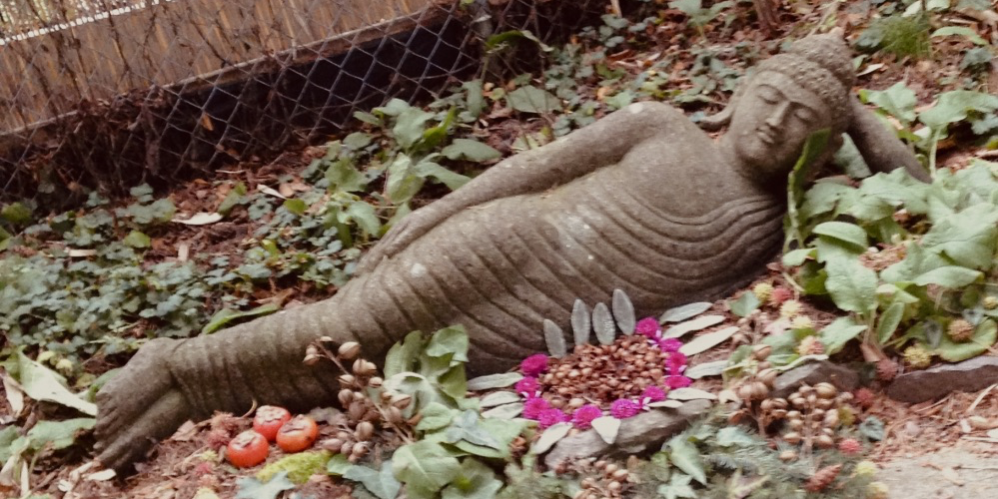This is a piece by Katrina Gould, LCSW, about the dharna learned from a childhood experience.
During the 1972/1973 school year, my family lived in Scotland. Two-thirds of the way into the year, my mom had a big surgery. She stayed in the hospital for two weeks before coming home. During those two weeks, I visited her once. I was eleven years old, she was thirty-four.
My dad asked me several times if I wanted to go see her, and after the one visit, I declined. Hospitals frightened me. More than that, I found the sight of my mom in a hospital bed deeply troubling. Only moments before she’d been the vibrant center of our family’s life that she usually was, teaching dance classes to Scottish women and children, and cycling into the Scottish countryside with my dad or the whole family. Now she lay in a bed that seemed designed to make her look small and vulnerable. I couldn’t bear to see her that way.
Years later, I learned she’d been confused by my behavior, and a bit hurt. She wanted to see me while she was recovering in the hospital. Of course she did.
I couldn’t go back and make my eleven-year-old self stretch herself a little more, but I could try and learn from the experience.
Fifty years later, a friend, who has not felt herself for several months, finally has a diagnosis. Today, I’ll go see her in the hospital. I still don’t like being in hospitals. They are places where our vulnerability and mortality are laid bare. It’s unsettling to come face-to-face with how much things can and do change.
This morning, I had an imaginary conversation with my mom. In it, I said to her, “I hope you feel I’ve made up for my lapse in Scotland.” The idea of this exchange made me laugh. Because of course I have. I’ve been fortunate enough to have had decades of life to make sure she and I wouldn’t be forever fixed at that moment, when my fear overwhelmed my empathy and I didn’t extend comfort to someone I love.
We’re all of us made up of many moments. We wish we could do some of those moments over again; in others, we do show up the way we intend to. A good enough life is one where those latter moments outweigh the former, and we can forgive ourselves.
As with most of life, the Dharma is woven throughout this story, but the teaching I most see here is that of an anattā. Anattā is the teaching that suggests, while we might experience ourselves as having a consistent throughline, in fact our self shifts as conditions shift. If this weren’t so, then I’d be forever stuck in that child self who couldn’t reach beyond her own fears to make contact with a loved one. In this instance, I was grateful that the self was not fixed. It enabled me to reflect on this earlier experience and make a different choice.

